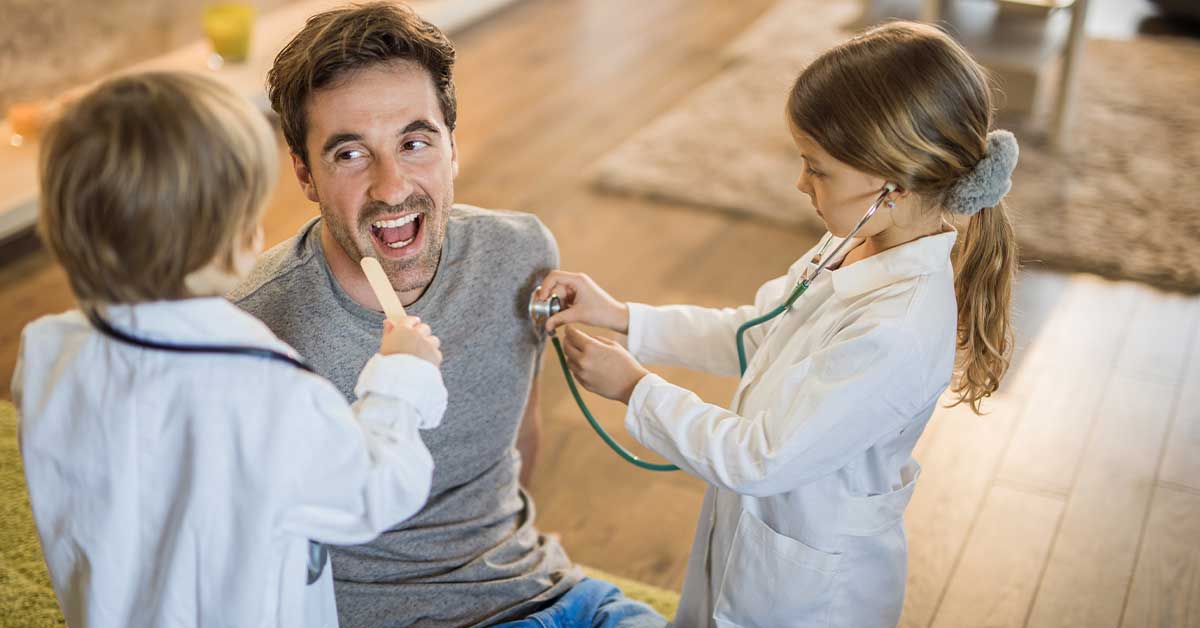World Mental Health Day falls this year on Saturday, October 10th, and organizations worldwide are raising awareness about mental illness and removing the stigma of seeking mental health treatment. World Mental Health Day was first recognized in 1992, and with the COVID-19 pandemic still impacting communities across the globe, this year’s events seem more relevant than ever.
Considering the chaos and challenges of the past eight months, a critical aspect to consider is how the pandemic has impacted the physician burnout rates, well-being, and mental health of our healthcare heroes, including physicians, nurses, and other providers serving on the frontlines.
In the United States – pre-COVID-19 – 45% of our physicians reported experiencing feelings of burnout at least weekly, and some studies show the rate is actually much higher. Also, an article reported that 20% of medical residents struggled with depression, further supporting the troubling trend of physicians having the highest rate of suicide compared to other professions. In fact, it’s estimated that 300 physicians die by suicide each year in the U.S.
Sadly, physicians rarely seek treatment, or they opt to self-medicate. A 2019 paper in Missouri Medicine, The Journal of the Missouri State Medical Association and published on the National Center for Biotechnology Information site explains that a little over 27% of medical students showed symptoms of depression but only 15.7% reached out for professional treatment.
While a mental health illness and physician burnout aren’t one in the same, both have devastating effects on physicians, their patients, and their families. And with 7.5+ million COVID cases and 210,000+ deaths to date, the lasting effects on physicians and other healthcare workers will not be known for some time. From providing care to wave upon wave of those infected, to worrying about having adequate PPE, to being concerned about exposing loved ones, physicians are at risk of experiencing Post-Traumatic Stress Disorder (PTSD).
Take Stock of Your Mental Health Through a Self-assessment
During this week leading up to World Mental Health Day, it is an important time for all physicians to do a self-assessment and seek appropriate treatment if you’re experiencing symptoms of depression, suicide ideation, other stress disorders, or PTSD. Symptoms may include:
- Recurring dreams, flashbacks, thoughts, or constant reminders of traumatic experiences.
- Not being able to share your thoughts or feelings about the trauma, or avoiding situations that remind you of it.
- Noticeable negative thoughts about yourself or the world around you. Feelings of irritability, hopelessness, and being emotionally numb.
- Having feelings of detachment, memory lapses, and a lack of interest in activities you would typically enjoy.
An Ounce of Prevention May Stave Off Feelings of Depression
With so much about the COVID-19 crisis still unknown, and with no clear end in sight, physicians should continue to monitor levels of depression and stress – even if you’re currently coping well. Additionally, consider the following pro-active steps to counteract the negative impact the pandemic may have on your mental health and overall well-being.
- Talk about your feelings. One of the simplest, but most often ignored ways to relieve stress and anxiety is to talk about it. Whether you sit down with a mental health professional, a trusted colleague, a professional physician coach, or a loved one, speaking freely about how you are feeling can be a release from your internal struggles.
- Practice what you preach. In the past, how many times have you counseled a patient to find ways to get more rest, employ a healthier diet, and engage in regular physical activity? Now, more than ever, these basic coping strategies should be implemented into your daily routine as much as practical.
- Turn off social media. Just as you might tell your teenager to cut back on screen time, you should follow suit yourself. Today’s political and social environment means that just spending a few minutes scrolling through social media sites can be enough to raise your stress levels. If you have a few minutes of downtime, use your smartphone to read a chapter of your favorite book or listen to music.
- Take a break. If possible, take your scheduled vacation, even if it means a staycation. Reconnecting with loved ones and relishing in your hobbies can bring feelings of much-needed normalcy.
- Take solace in the importance of your work. While the past eight months may feel like more than you signed up for, you were called to medicine for a reason. Through the frustrations, challenges, and worries, the practice of medicine is a noble and worthy pursuit. Take a moment to remind yourself of the importance of your work and recognize that the sacrifices being made by yourself and your colleagues are invaluable.
- Finally, do not self-medicate. Trust a healthcare professional to assess your symptoms and prescribe a course of treatment. Getting past the fear of judgment or negative stigma associated with mental illness may be difficult, but it has been documented that non-depressed physicians make fewer errors – and you’ll feel better.
While World Mental Health Day is a good reminder to highlight the mental health of physicians during this pandemic and have empathy for those who are struggling, the feelings of depression, burnout, stress, and fatigue are not going to magically disappear once COVID-19 becomes a historical discussion, much like H1N1 and SARS. Physicians will be dealing with the aftereffects of this crisis well beyond, making it vitally important to take appropriate actions now. Practice self-care and also be mindful of the mental illness warning signs in your colleagues. Sometimes it takes an uncomfortable – but brave – conversation to save a life or a career.
Resources for Anonymous Help
Remember that you are not alone, and there are resources available to help you through these troubling times. Physicians can call the Physicians Support Line at (888) 409-0141 for free, anonymous counseling. Another free resource providing peer-to-peer programs designed to provide support, connection, encouragement, and skill-building to help physicians combat burnout, is PeerRxMed. Finally, physicians and others in crisis can always contact the National Suicide Prevention Lifeline at (800) 273-8255, 24-hours a day, 7-days a week.
If, upon reflection, you decide now is the right time to explore new career opportunities, Jackson Physician Search has a team of healthcare industry experts who can guide you every step of the way. We have the experience, network, and nationwide reach to work with you in finding a practice setting that gets you closer to achieving your career and life goals. Contact our team of physician recruitment professionals today and find out how we can make a difference for you.











